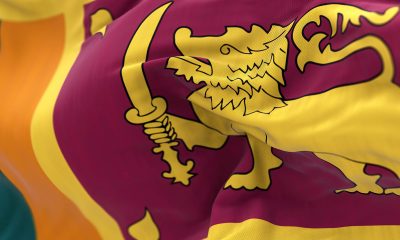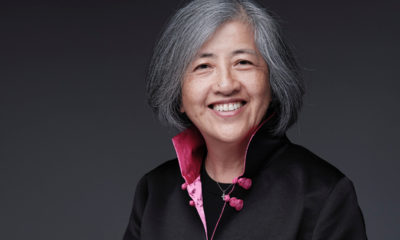South Central Asia
Sri Lanka government backs decriminalization bill
Leading activist group ‘very optimistic, but cautiously so’
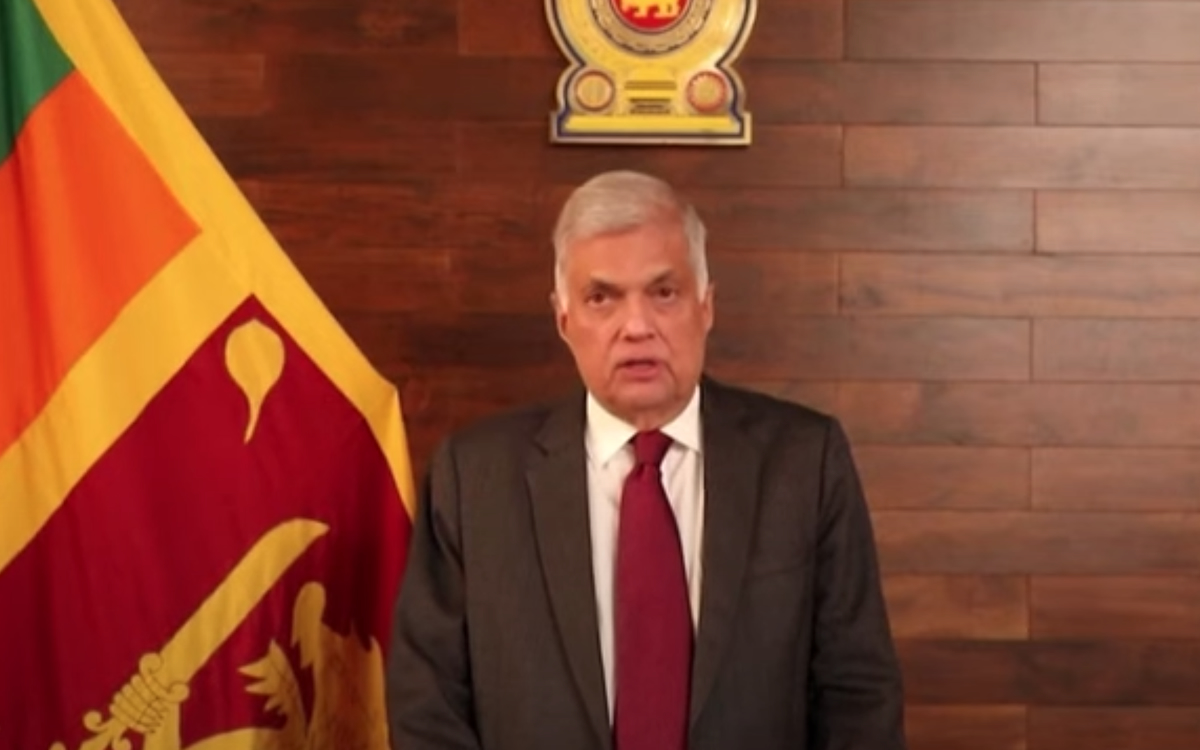
COLOMBO, Sri Lanka — The government of Sri Lanka on Thursday said it supports a bill that would decriminalize consensual same-sex sexual relations in the country.
“There is a private member bill initiated by Sri Lanka Podujana Peramuna (SLPP) Government MP and attorney Premnath C. Dolawatte,” Foreign Affairs Minister Ali Sabry told the Daily Morning, a Sri Lankan newspaper. “The government will support its position of decriminalizing same-sex relationships. We are, however, not legalizing same-sex marriages. But, we would decriminalize it. I think that there is a lot of consensus for that, so let that come to Parliament.”
Sections 365 and 365A of the Sri Lankan penal code criminalizes consensual same-sex sexual relations.
The U.N. Committee on the Elimination of Discrimination Against Women last March published a decision that found the criminalization laws violated the rights of Rosanna Flamer-Caldera, executive director of Equal Ground, a Sri Lankan LGBTQ+ and intersex rights group.
President Ranil Wickremesinghe during a meeting with U.S. Agency for International Development Administrator Samantha Power that took place last September said his government will not oppose Dolawatte’s bill. The Daily Morning reported the U.S., the U.K., Canada and Norway have urged the government to decriminalize consensual same-sex sexual relations.
Sri Lanka is a former British colony.
“We are very optimistic, but cautiously so,” Flamer-Caldera told the Washington Blade on Friday. “It’s been more than 19 years that our organization has been advocating for decriminalization and it’s good to see the work bearing fruit, finally. But it’s still a long road ahead.”
Neighboring India is among the former British colonies that have decriminalized consensual same-sex sexual relations in recent years.
Lawmakers in Singapore last November repealed their country’s colonial-era sodomy law. Judges in 2022 also struck down criminalization statutes in St. Kitts and Nevis and Antigua and Barbuda.
South Central Asia
Pakistan resumes issuing ID cards to Transgender people
Federal Shariat Court in June ruled against trans rights law
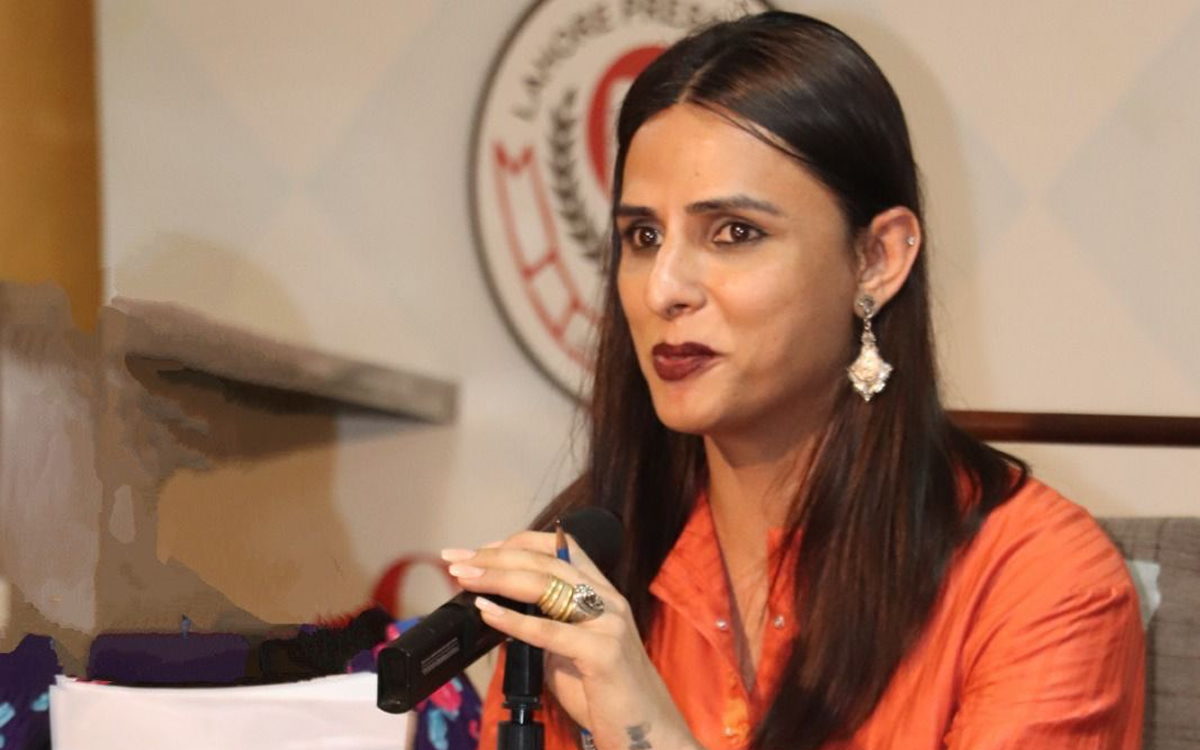
ISLAMABAD — Pakistani authorities have resumed the registration of Transgender people and issuing identity cards to them after the Supreme Court’s Sharia Appellate Bench on Sept. 25 ruled on the issue.
An Islamic court on June 13 ordered all data acquisition units to halt the registration of Trans people and to issue identity cards only to males or females.
The Supreme Court in 2009 extended civil rights to the trans community. Pakistani MPs in 2018 passed a historic law, the Transgender Persons (Protection of Rights) Act, that guaranteed all the rights available for all citizens to Trans people, and prohibited any discrimination based on gender identity.
Jamiat-e-Islami, Jamiat Ulema-e-Islam and Tehreek Labbaik Pakistan and several other Pakistani religious political parties in 2022 raised objections to the law, stating it was un-Islamic.
The Federal Shariat Court in May struck down three sections of the Transgender Persons (Protection of Rights) Act and said Islamic teachings do not allow anyone to change their gender at their will. The court also said gender assigned at birth shall remain intact.
The Islamic court’s June 13 verdict prohibited any new registration for an identity card with an X gender marker or update an older one. The National Database and Registration Authority after the ruling issued that halted the registration of Trans people. Individuals in Pakistan need ID cards to open bank accounts, seek legal aid, report a crime to the police, ask for medical help and receive a passport.
NADRA is an independent agency that regulates the government database and registration of sensitive information of citizens. The Federal Shariat Court is a constitutional Islamic court that scrutinizes and determines if laws made in Parliament comply with Sharia laws.
Nayyab Ali, a Trans rights activist in Pakistan, during a telephone interview with the Washington Blade said the court’s voting bloc is based on religious elements. She also said right-wing political parties target Trans Pakistanis when they do not get publicity.
“Right-wing political parties picked up the Transgender issues in Parliament, and started hate speeches on transgender laws,” said Ali. “There is also a divide in the Transgender community in Pakistan. Some Transgender factions also support right-wing political parties to strengthen their agenda. People inside the government came from the grassroots level of society. Society has an extreme level of phobia and stigma for the Transgender population, so when they come to power, they make policies that are against the Transgender community.”
Ali on X, formerly known as Twitter, praised the decision that allowed the resumption of issuing ID cards to Trans people. Documents the Blade obtained indicate she is one of those who challenged the Federal Shariat Court’s decision.
Kami Sid, a Trans activist and executive director of Sub Rang Society, a Pakistan-based LGBTQ+ rights organization, said the community is happy and quite hopeful for a better future.
“First we as a community were very much worried about the Federal Shariat Court’s decision,” said Sid. “But after several advocacy and meetings we are quite hopeful for the fight against the Federal Shariat Court decision, and now quite relaxed as a Transgender activist, I must say the community is happy.”
Kami, like Ali, also challenged the Federal Shariat Court’s decision.
Kami told the Blade conservative parties over the last few years have become more willing to promote an agenda that opposes rights for women, children and Trans people.
“Transgender rights are human rights,” said Kami. “That is why the previous government refrained from commenting on the Shariah Court ruling out of fear of the right-wing parties and because Transgender people are not a top priority.”
Foreign Minister Jalil Abbas Jilani attended the annual UPR meeting in Geneva in January and received approximately 354 human rights-specific recommendations.
Iside Over, an online news website, reports Pakistan may not get an extension over the European Union’s Preferential Trade Arrangement over its failure to improve its human rights record, among other reasons. Kami told the Blade the Generalized System of Preference, or GSP, from the EU has put pressure on the Pakistani government to address human rights-specific issues.
Ankush Kumar is a reporter who has covered many stories for Washington and Los Angeles Blades from Iran, India and Singapore. He recently reported for the Daily Beast. He can be reached at [email protected]. He is on Twitter at @mohitkopinion.
South Central Asia
UN human rights experts condemn Taliban over treatment of LGBTQ+ Afghans
Extremist group regained control of country on Aug. 15, 2021
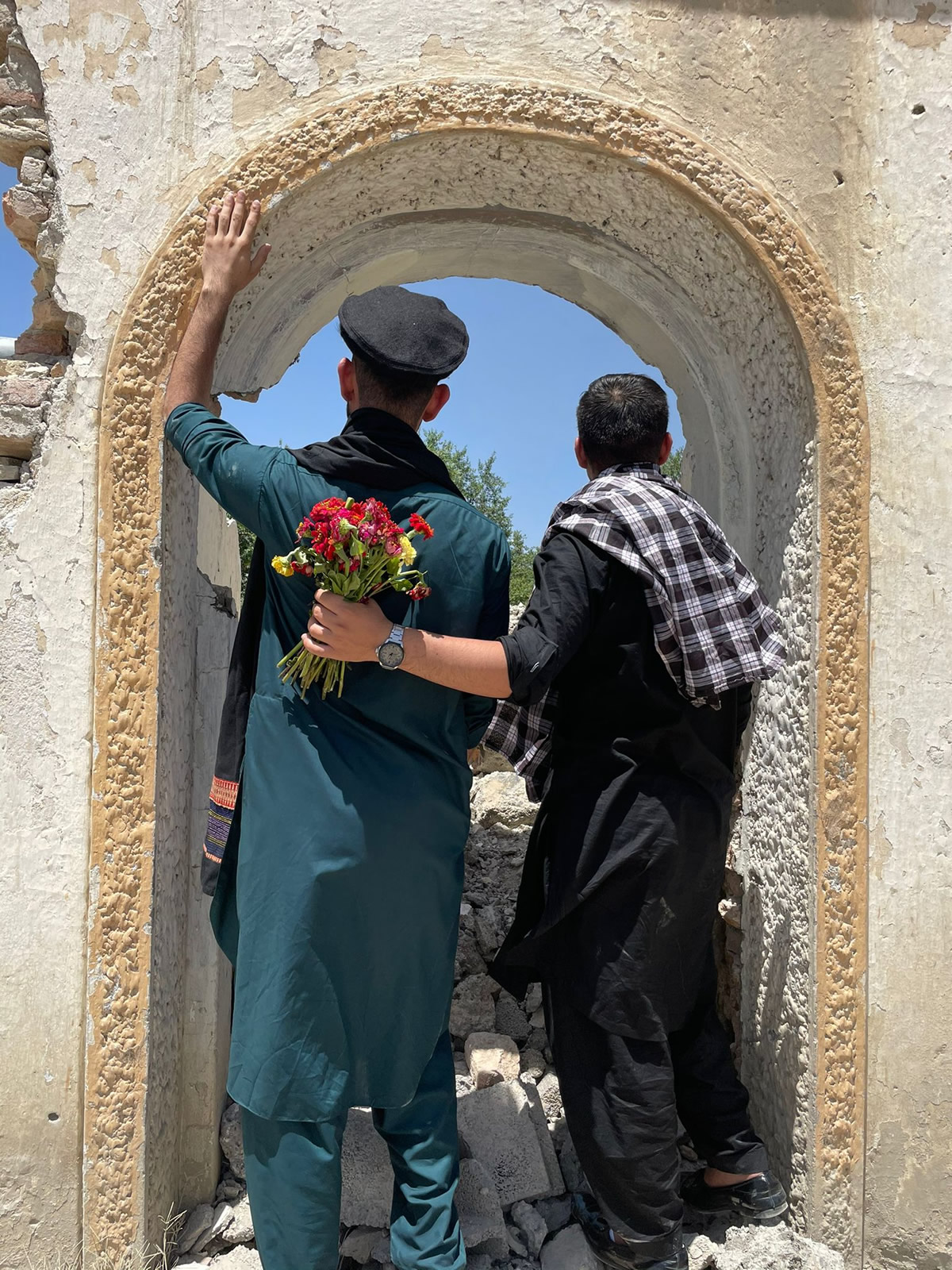
GENEVA — United Nations human rights experts on Monday sharply criticized the Taliban over its treatment of LGBTQ+ and intersex people and other groups in Afghanistan.
“Two years ago, the Taliban seized power in Afghanistan. Since then, the policies they have imposed on the Afghan population have resulted in a continuous, systematic and shocking rescinding of a multitude of human rights, including the rights to education, work and freedoms of expression, assembly and association. Consistent credible reports of summary executions and acts tantamount to enforced disappearances, widespread arbitrary detention, torture, and ill treatment, as well as arbitrary displacement have caused increased concern,” reads a statement that Victor Madrigal-Borloz, the independent U.N. expert on LGBTQ and intersex issues, and others signed. “The hardest hit are women and girls, ethnic, religious and other minorities, people with disabilities, displaced persons, LGBTQ+ persons, human rights defenders and other civil society actors, journalists, artists, educators and former government and security officials.”
“Despite reassurances by the Taliban de facto authorities that any restrictions, particularly in terms of access to education would be temporary, the facts on the ground have demonstrated an accelerated, systematic and all engulfing system of segregation, marginalization and persecution,” the statement further notes.
The Taliban regained control of Afghanistan on Aug. 15, 2021. The last American forces withdrew from the country 15 days later.
The State Department in its 2022 human rights report notes the Taliban “criminalizes consensual same-sex sexual activity, and representatives routinely enforced this position through violence, intimidation, harassment and targeted killings.”
“Under sharia, conviction of same-sex sexual conduct is punishable by death, flogging or imprisonment,” reads the report. “Individual Taliban members made public statements reiterating that their interpretation of sharia includes the death penalty for homosexuality.”
The report further notes the Taliban “takeover of the country increased fears of repression and violence among LGBTQI+ persons, with many individuals going into hiding to avoid being captured by the Taliban. Many fled the country after August 2021. LGBTQI+ persons faced increased threats, attacks, sexual assaults, and discrimination from Taliban members, strangers, neighbors and family members.”
Outright International and Human Rights Watch in January 2022 released a report that includes interviews with LGBTQ and intersex Afghans who the Taliban have targeted. They include a 20 year-old man who said Taliban members “loaded him into a car” at a checkpoint and “took him to another location where four men whipped and then gang raped him over the course of eight hours.” The report also notes the Taliban beat a transgender woman in Kabul, the Afghan capital, and “shaved her eyebrows with a razor” before they “dumped her on the street in men’s clothes and without a cellphone.”
South Central Asia
Pakistan court rules against trans individuals as contrary to Sharia
In its determination the court found that “the Islamic teachings do not allow individuals to change their gender at their own will
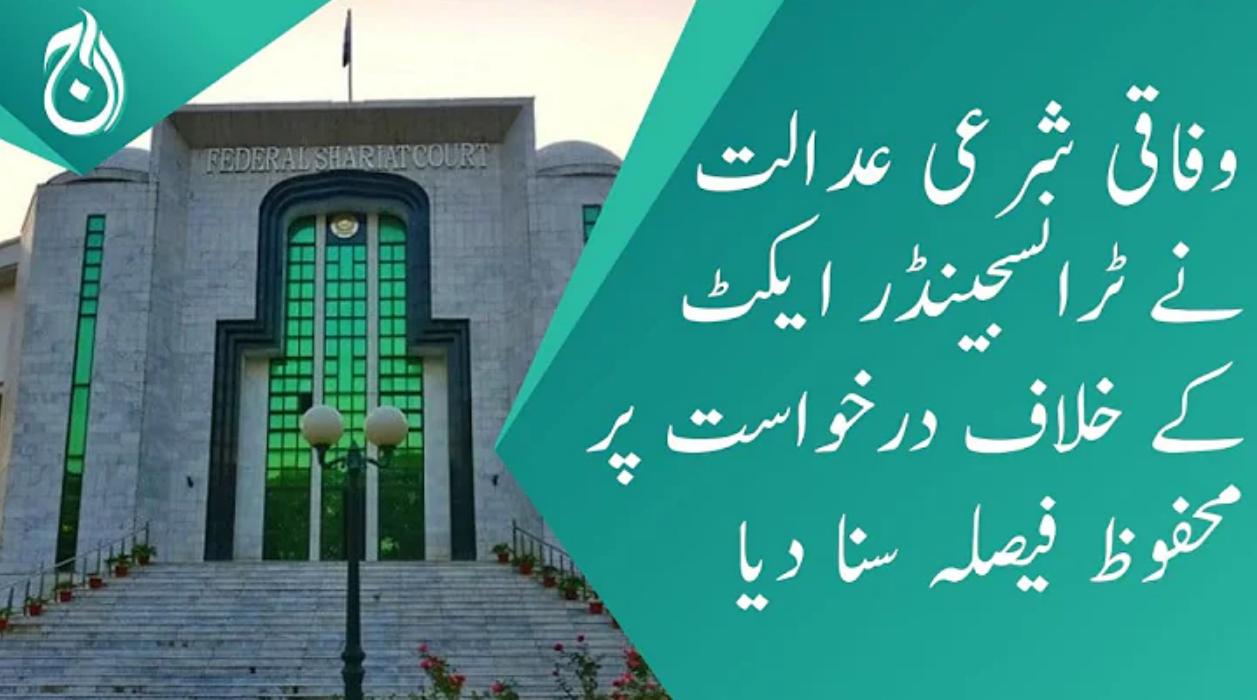
ISLAMABAD, Pakistan – The Federal Shariat Court ruled May 19 to enact revocation of sections of the country’s Transgender Persons (Protection of Rights) Act, of 2018.
According to Pakistan media outlet ARY, the acting Chief Justice Syed Muhammad Anwar and Justice Khadim Hussain of the Federal Shariat Court Islamabad delivered the verdict that sections 2(f), 3 and 7 of the Transgender Act 2018 are against Islamic teachings, while Section 2(n) of the Transgender Act is not contrary to Sharia.
In its determination the court found that “the Islamic teachings do not allow individuals to change their gender at their own will. The verdict further maintained that an individual’s gender shall remain the same as assigned at birth.”
“This verdict is a blow to the rights of the already beleaguered group of transgender and gender-diverse people in Pakistan. Further, some of the observations made by the Court were based on presumptive scenarios rather than empirical evidence. The denial of essential rights of transgender and gender diverse persons should not be guided by assumptions rooted in prejudice, fear and discrimination,” Rehab Mahamoor, a spokesperson for Amnesty International, said in a statement.
The court’s ruling comes three months after the first trans female anchor on the independently owned and operated Kohenoor News Network escaped serious injury after two gunmen opened fire as she was returning to her residence after a trip to a local pharmacy.
Marvia Malik, who had made history in the conservative Muslim-majority nation as the first openly trans person on a television channel in 2018, told police investigators that she believed her activism LGBTQ+ rights was a “major factor” behind the assassination attempt citing several threatening calls prior to Friday’s attempt on her life.
The court’s ruling emphasized that gender cannot be determined solely based on feelings. The justices also noted that in the court’s opinion, the 2018 Act could pave the way for rape, and sexual assault of women as they allege the law “makes it easy for a man to gain access to exclusive spaces intended for women, disguised as a transgender woman.”
There is no publicly available evidence of such incidents taking place in Pakistan.
Pakistan is a country that is notorious for its human rights violations, and the LGBTQ and intersex community is one of the most vulnerable groups in the country. Despite the challenges, the community is fighting for their rights and slowly making progress.
Since homosexuality is illegal in Pakistan, the LGBTQ and intersex community is often forced into hiding. This makes it difficult to estimate the size of the community, but it is thought that there are tens of thousands of LGBTQ and intersex people living in Pakistan. Many of them live in wealthy areas of Karachi, the country’s largest city, without fear, as do community members in similar parts of Pakistan.
South Central Asia
Pakistan’s first trans TV anchor escapes assassination attempt
Marvia Malik made history in the conservative Muslim-majority nation as the first openly trans person on a television channel in 2018
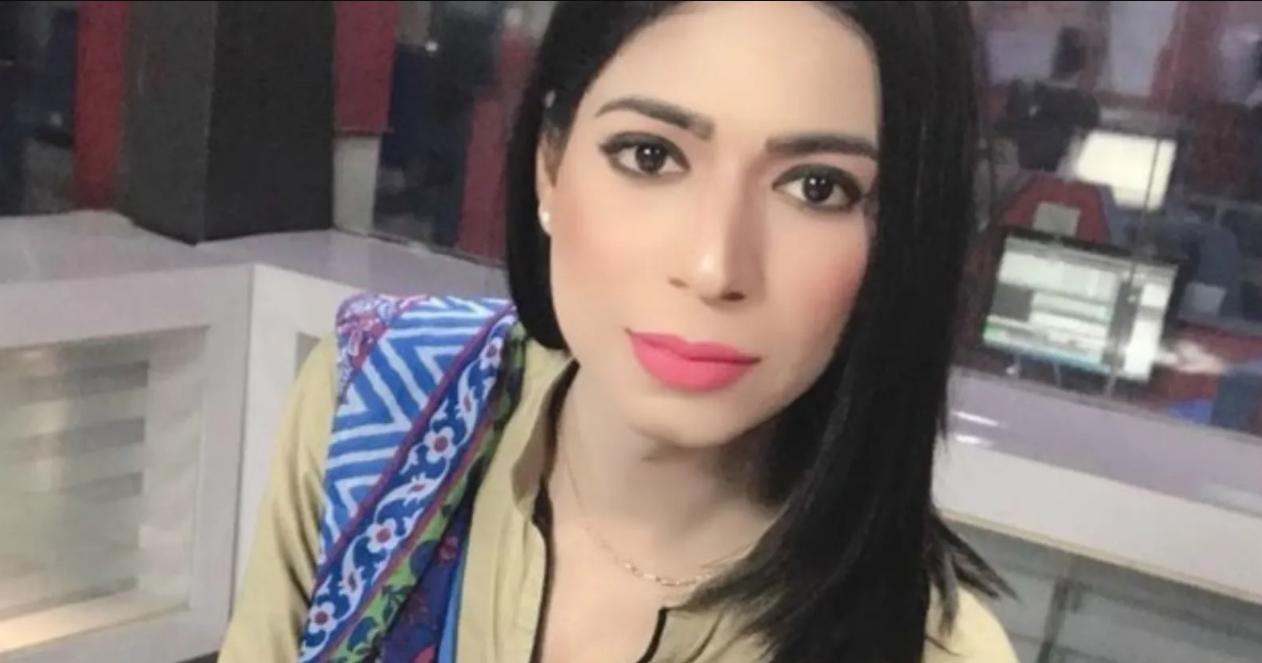
LAHORE, Pakistan – The first trans female anchor on the independently owned and operated Kohenoor News Network escaped serious injury after two gunmen opened fire as she was returning to her residence after a trip to a local pharmacy.
Marvia Malik, who had made history in the conservative Muslim-majority nation as the first openly trans person on a television channel in 2018, told police investigators that she believed her activism LGBTQ+ rights was a “major factor” behind the assassination attempt citing several threatening calls prior to Friday’s attempt on her life.
Malik, who had moved out of Lahore fearing for her safety based on previous threats, had returned for a surgery only days before the attempt on her life happened.
LGBTQ+ rights in Pakistan are still severely restricted with homosexuality being outlawed punishable by prison sentences and conversion therapy is often a prescribed treatment.
The community, however, continues to face many challenges in Pakistan. They experience discrimination and violence both from individuals and the government.
In 2018, for example, the Pakistani government passed a law under Section 377 of the country’s colonial-era penal code that made same-sex marriage punishable by up to 10 years in prison. Homosexuality remains criminalized in Pakistan.
In addition to the criminalization of LGBTQ and intersex Pakistanis, the community also continues to face discrimination and violence that family members often perpetuate.
Many LGBTQ and intersex people face verbal, emotional and even physical abuse from their families due to societal and religious pressures. This can lead to them dropping out of school or foregoing higher education altogether.
Discrimination in the workplace and education system forces many LGBTQ and intersex Pakistanis to remain in the closet, and those who are out often cannot find work or continue their education. Access to health care — including testing and treatment for sexually transmitted diseases and infection — is an ongoing challenge.
A law that permits transgender people to legally change the gender on their national ID cards and other official documents, allows them to vote and bans discrimination based on gender identity in employment, health care, education and on public transportation took effect in 2021. Pakistan’s Supreme Court in 2009 ruled in favor of recognizing trans people as a third gender on identity cards. Discrimination against trans Pakistanis remains pervasive in spite of these advances.
In an interview with fashion magazine ELLE, Malik then 21, who had previously worked as a model noted that she moved in with a transgender friend and earned a BA in journalism and civics from Lahore’s Punjab University, while studying make-up and working at a local salon to support herself.
Upon graduation, she began looking for jobs — and landed her first and current one with Kohinoor News, a small Lahore based TV channel, after passing her screen test with flying colours. “At my interview, they asked, ‘Why are you interested in working here? Don’t transgender people just beg and dance for money?’”
After three months of training, she began her career on March 23, 2018 and news of her employment went viral she told the worldwide women’s magazine.
“Like other trans people, I did not get any support from my family. On my own, I did some menial jobs and continued my studies. I had always wanted to be a news anchor, and my dream came true when I got selected,” she said to Voice of America in a interview.
Speaking with the BBC she said: “Our community should be treated equally and there must not be any gender discrimination. We should be given equal rights and be considered ordinary citizens, instead of third-gender.”
She added: “My family knows I have modelled and they know that I work as a newscaster. It’s the age of social media and there’s nothing that my family doesn’t know. But they have still disowned me.”
Pakistan is a country that is notorious for its human rights violations, and the LGBTQ and intersex community is one of the most vulnerable groups in the country. Despite the challenges, the community is fighting for their rights and slowly making progress.
Since homosexuality is illegal in Pakistan, the LGBTQ and intersex community is often forced into hiding. This makes it difficult to estimate the size of the community, but it is thought that there are tens of thousands of LGBTQ and intersex people living in Pakistan. Many of them live in wealthy areas of Karachi, the country’s largest city, without fear, as do community members in similar parts of Pakistan.
South Central Asia
Cloud-based platform seeks to improve health care for LGBTQ+, intersex Indians
Borderless LGBT currently operates in Bengaluru
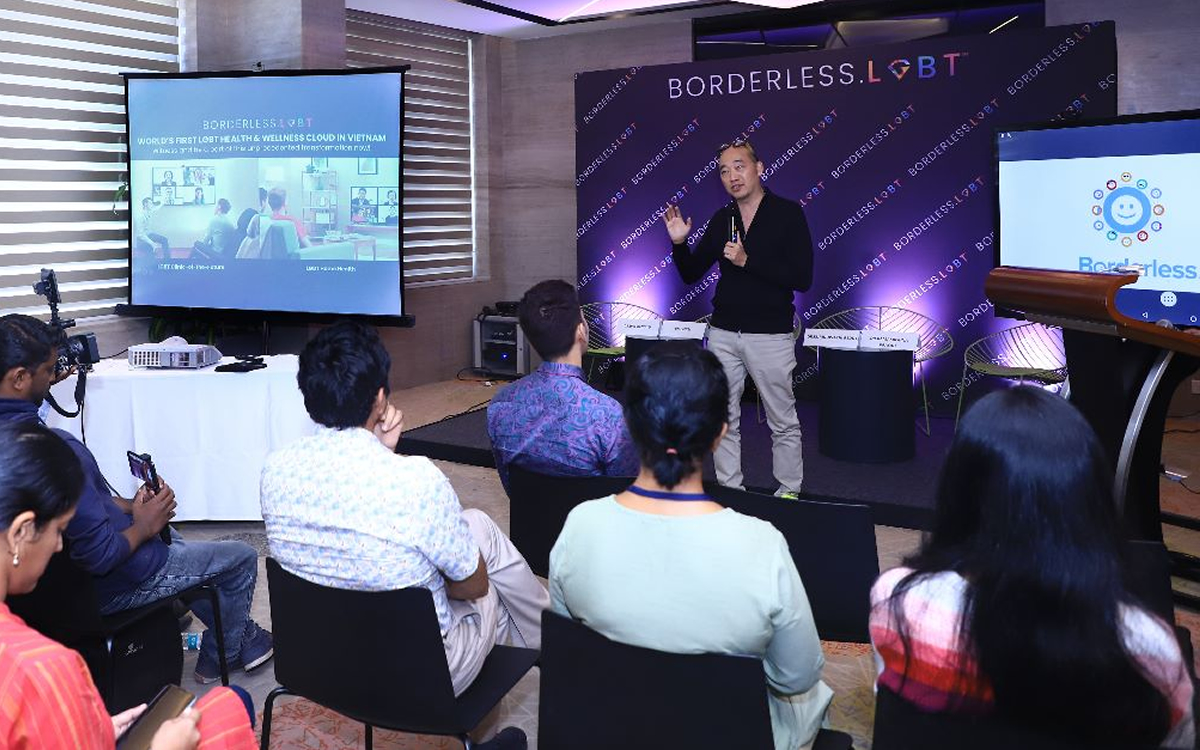
BENGALURU, India — The COVID-19 pandemic wreaked havoc and forced India into a strict lockdown.
The Indian government, through the Union Health Ministry, says upwards of 530,677 people died from COVID-19, and the country administered 2,200,212,178 doses of vaccines. The pandemic, however, exposed the truth about discrimination based on gender identity in the country’s healthcare system.
India’s Transgender community, in particular, had a difficult time accessing the vaccine.
The country’s LGBTQ+ and intersex community often faces discrimination and stigma in both traditional private and government-run healthcare facilities. To tackle this, Borderless LGBT, the world’s first cloud-based health and wellness medical service that specifically focuses on LGBTQ+ and intersex healthcare, has launched a cloud clinic in India.
The cloud-based platform allows global experts to collaborate with local doctors who are interested in LGBTQ+ and intersex medicine to provide care to LGBTQ+ and intersex patients either in the clinic or at home via immersive telemedicine.
Borderless Health Care Group, Borderless LGBT’s parent company, provides a wide range of healthcare and wellness solutions to patients globally that includes general health, women’s health, men’s health, chronic disease management and pet care. But the idea behind Borderless LGBT came from the sense that the LGBTQ+ and intersex community is the most underserved, and there was a need for a platform that provides healthcare and wellness services to the community without any judgment.
“The goal is to democratize LGBT healthcare knowledge and services via the implementation of (an) LGBT clinic-of-the-future and technology-enabled LGBT home health,” Lani Santiago, vice president of the Borderless Healthcare Group’s Chairman’s Office, told the Washington Blade. “We have doctors from the U.S., Europe, Australia, (Southeast) Asia, India, etc.”
COVID-19 — and associated lockdowns, loss of employment and loved ones, the sudden overflow of patients and isolation from friends and family — affected mental health in India. This trend, however, is not new for the LGBTQ+ and intersex community.
Community members in a largely conservative Indian society have faced mental health issues all their lives, and researchers around the world have said the LGBTQ+ and intersex people face more mental health issues than heterosexuals. The stigma and prejudice in society have a different impact on the community.
Borderless LGBT in India, among other things, is providing mental health services for the LGBTQ+ and intersex community. The cloud-based platform is also providing health services for HIV, STD, sexual wellness, chronic disease management and family planning for the LGBTQ+ and intersex community in India.
Borderless LGBT is currently providing health care services in Bengaluru, the capital of Karnataka state in southern India. But in an interview with the Blade, Santiago said that the company has planned to roll out the services in other key cities in the country.
Santiago said that the traditional medical services that general hospitals offer do not cater to the specific needs of the LGBTQ+ and intersex community. In addition, the inefficiency and inherent conflict of interest in the traditional medical fraternity will take a long time to serve them.
“Borderless LGBT aims to create a new online-to-offline delivery channel to provide LGBT community unparalleled access to the best-of-class LGBT health and wellness knowledge and services where local doctors interested in LGBT healthcare can have instant access to global experts to support the management of their LGBT patients,” said Santiago. “The traditional provision of services is usually dependent on the knowledge and experience of the local doctor which in India, LGBT healthcare is still at its infancy.”
A 2021 report from National AIDS Control Organization, a division of India’s Health and Family Welfare Ministry, notes 2.4 million people are living with HIV in the country.
Stigma, societal pressure, and shame have pushed gay men underground, and not many of them seek help regarding HIV and other sexually transmitted infections. Borderless LGBT and other innovative healthcare solutions can provide an opportunity for patients from the community to seek medical attention without facing discrimination, shame, or stigma with their privacy intact.
“Borderless LGBT is positioned to support the local doctors with the latest knowledge in LGBT healthcare via a new online-to-offline global ‘co-care’ model with global experts,” said Santiago. “Thus, bringing the best of proximal local care and the best of global matured LGBT healthcare knowledge to the LGBT community.”
Vinay Chandran, executive director of Swabhava, an NGO in India that supports the LGBTQ+ and intersex community with health and advocacy, told the Blade that a generation of LGBTQ+ and intersex people who have not benefitted from public health services might hopefully benefit from these cloud-based efforts.
One concern that Chandran has is how people outside of urban areas will access these services. Chandran, however, believes time will tell whether Borderless LGBT’s efforts to ensure adequate health care outreach will prove successful.
“LGBT+ people have had personal and historical encounters with healthcare that range from the ignorant to the violent,” he said. “It is to the credit of a huge number of activists and legal challenges that the National Medical Commission of India have required a rewriting of curriculum and contemplate disciplinary action for those practising conversion therapy. However, implementation fo such measures will take time. Meanwhile, if the working LGBT+ population can have access to such clinics, I’m sure it will benefit quite a few of them.”
Amrita Sarkar of Alliance India, another NGO that works to bolster care for Indians with HIV, echoed Chandran’s concerns about lack of access to cloud-based health care outside of urban areas. Sarkar during an interview with the Blade encouraged Borderless LGBT to work with local LGBTQ+ and intersex organizations to raise awareness of these platforms.
Ankush Kumar is a freelance reporter who has covered many stories for Washington and Los Angeles Blades from Iran, India and Singapore. He recently reported for the Daily Beast. He can be reached at [email protected]. He is on Twitter at @mohitkopinion.
South Central Asia
Pakistani cinema and television highlights LGBTQ+, intersex issues
Government sought to ban ‘Joyland’
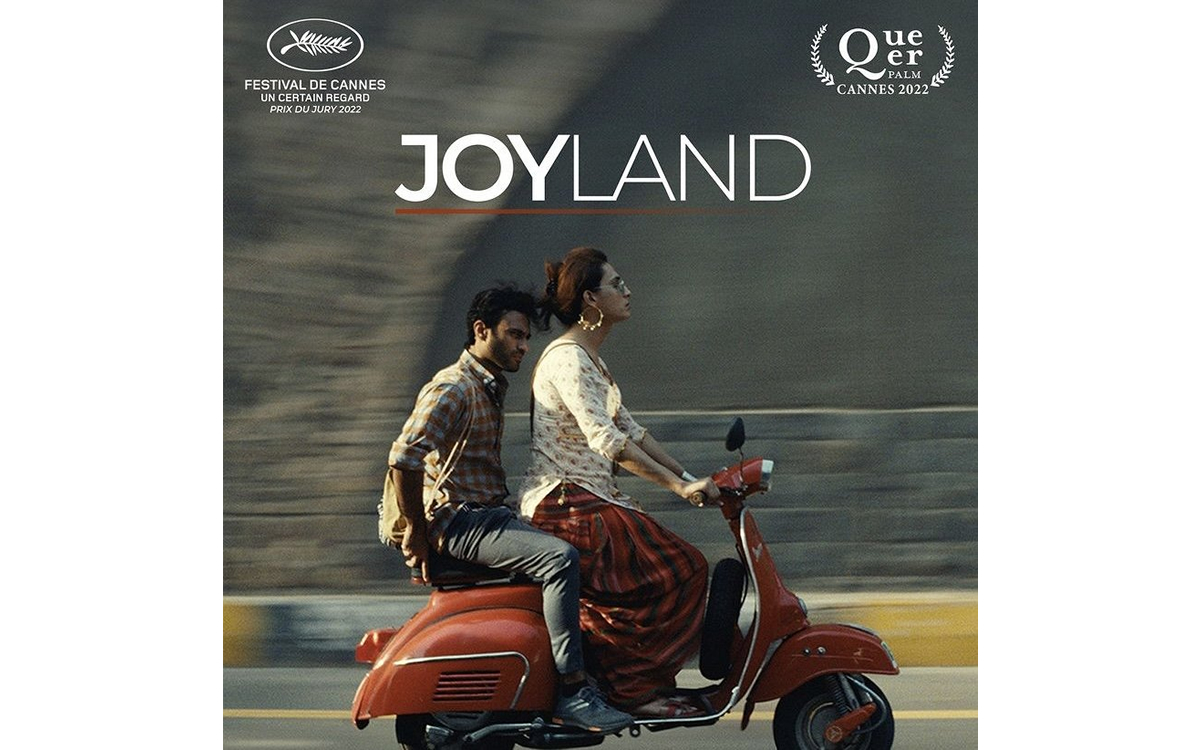
LAHORE, Pakistan — There are several Pakistani movies and television shows that depict the lives of LGBTQ+ and intersex people in society.
Though some media outlets have become more inclusive, the representation of queer people on screen is still too rare. Pakistan has seen a rise in the production of LGBTQ+ and intersex movies and television shows that include dramas, documentaries and web series. Some of them are made in Pakistan, while others are produced abroad. Many of them have been released in Pakistan. The government banned some of them, but others have not only amused audiences but won international awards.
Here is a list of some of them.
‘Joyland’
“Joyland” is a Pakistani film that made waves at the Cannes Film Festival.
The film follows the story of a Transgender woman named Biba, who is trying to make a living as a dancer in Lahore. She faces many challenges in her life, including discrimination and violence from those who do not accept her gender identity. She nevertheless persists, despite these difficulties, and ultimately finds love and acceptance from unexpected sources. This heartwarming film highlights the struggles and triumphs of the trans community in Pakistan and is sure to resonate with viewers around the world. “Joyland” is a powerful and timely film that highlights the struggles of Trans people in Pakistan. It is also a celebration of hope and friendship, and an uplifting story about chasing your dreams against all odds.
In a conservative Pakistani family, the youngest son Haider (Ali Junejo) is expected to produce a baby boy with his wife. However, he joins an erotic dance theater and falls for the troupe’s director, a Trans woman. This film tells the story of the sexual revolution in Pakistan and their struggle against traditional gender roles and expectations.
“Joyland” is the first Pakistani film on the LGBTQ+ topic that premiered at Cannes Film Festival and received an overwhelming response. It won the prestigious Cannes “Queer Palm” award during its world premiere. The government had tried to ban the film, but it opened in the country last month.
‘Poshida: Hidden LGBT Pakistan’
In the conservative, Muslim-dominated country of Pakistan, homosexuality is a taboo topic. However, there is a thriving LGBTQ+ and intersex community in Pakistan that is forced to live in secrecy. The documentary “Poshida: Hidden LGBT Pakistan” shines a light on this hidden community.
It follows the lives of several LGBTQ+ and intersex Pakistanis, who bravely share their stories. The documentary was released in 2015 in Pakistan and in the U.K. by director Faizan Fiaz. It was the first kind of movie on the “LGBTQ” topic. The film was screened at film festivals in Barcelona, Spain, and in the U.S. The word “poshida” means “hidden” in Urdu. The film is particularly timely given the current global discussion around LGBTQ+ and intersex rights. It examines the legacy of colonialism, class structures and the impact of the U.S. government’s gay rights advocacy in Pakistan.
The documentary is about a serial killer from Lahore who kills Trans people, women and gay men for entertainment purposes. Human rights abuses of Trans men and women are also explored in the documentary.
‘Churails’
Pakistani cinema has come a long way in recent years, tackling several taboo subjects and exploring new genres and stories. One of the most groundbreaking Pakistani films of recent years is “Churails.”
The film is the first Pakistani queer web series that revolves around four women. It is the first time that a lesbian relationship in any Pakistani film or web series is portrayed.
This film features a Trans woman Baby Doll (Zara Khan), lesbian lovers Babli (Sameena Nazir) and Pinky (Bakhtawar Mazhar) and a gay husband. Four women who were students — one was a wedding planner, the third one was convicted of a crime and the fourth woman was a socialite set up a secret detective agency in Karachi. The aim was to launch a detective service for those women who were cheated by their husbands.
A web series set in Karachi challenges the status quo and subverts the conventional narrative. The critically acclaimed web series has opened up a debate about Pakistan’s patriarchal society. The show doesn’t shy away from tough questions: Veils, deception and secrets. “Churails” is the story of four self-made women who come together to break certain stereotypes and challenge societal hypocrisy.
“Churails” is the first Pakistani drama web series which was released in 2020 by ZEE5, an Indian on-demand video platform. The web series is directed and produced by Asim Abbasi. The film was not allowed to screen in Pakistani cinema or channels. The movie was only available on ZEE5. however, at the time of releasing the film the state bank of Pakistan ordered all the banks to block Pakistani consumers to purchase subscriptions to ZEE5.
“Churails” won the “OTT Platform Show of the Year” at the British Asian Media Awards in February 2021. “Churails” is a feminist film in every sense of the word.
South Central Asia
India Supreme Court chief justice seen as LGBTQ ally
Chandrachud has been expressing his observations and opinions on the issue of LGBTQ rights in India, even when he was not the chief justice
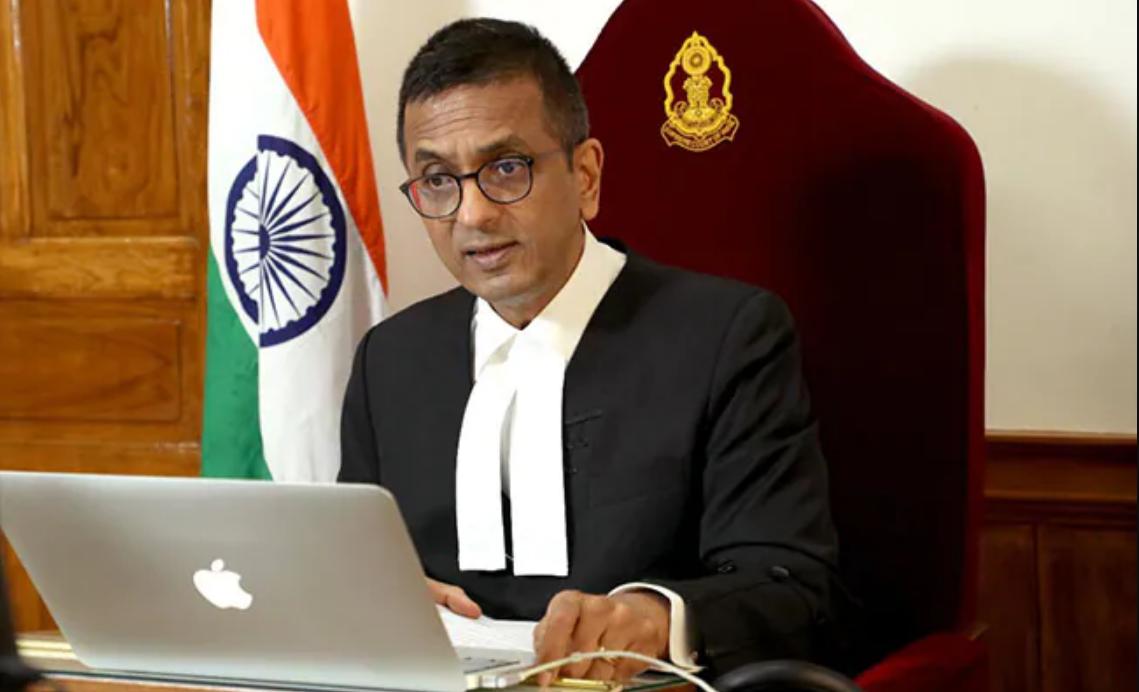
NEW DELHI – The struggle for equality in the world’s biggest democracy took a giant step forward in 2018 with the decriminalization of homosexuality, but the fight is not over.
Though homosexuality is now decriminalized in India, same-sex marriage is still not legalized. In other words, same-sex couples can love but cannot marry. The pain in the community is visible. Since same-sex marriage is not legally recognized, it affects a spectrum of rights available to heterosexual couples that include the transfer of property and access to medical facilities.
Several marriage equality cases have been filed in the Delhi High Court and in other courts across the country.
Two petitions filed by gay couples came to the India’s Supreme Court on Nov. 25 asking for recognition of same-sex marriage under the Special Marriage Act, 1954. A bench led by the new Chief Justice D. Y. Chandrachud issued a notice to the federal government and the attorney general and posted the matter for further hearing after four weeks.
Life Insurance Corporation of India (LIC), a public sector insurance company under India’s Finance Ministry, last month appeared to recognize a same-sex couple who lives in Kolkata. The arrival of the Supreme Court’s new chief justice is an additional ray of hope for the country’s LGBTQ and intersex community.
On many occasions, Chandrachud has signaled his support for the community. For instance, while speaking at the British High Commission in New Delhi, the Indian capital, on Aug. 31, Chandrachud said that decriminalization of homosexuality alone cannot achieve equality, and it must extend to “all spheres of life,” including home, workplace, and public places.
Chandrachud has been expressing his observations and opinions on the issue of LGBTQ rights in India, even when he was not the chief justice but a Supreme Court judge. Chandrachud, while speaking at the British High Commission event, which focused on the future of the country’s LGBTQ and intersex rights movement, said society owes a debt of gratitude to every individual who formed and continues to form a part of the struggle for equality.
“Perhaps, we need a little more than love,” highlighted Chandrachud at the New Delhi event while calling for structural change in society to let the LGBTQ community live a life of autonomy and dignity.
The Supreme Court in 2018 struck down the law decriminalizing homosexuality. Chandrachud was on the Supreme Court in 2018 when it decriminalized homosexuality between consenting adults and recognized sexual autonomy as a basic right of individuals.
“While the decision in Navtej was momentous, we have a long way to go. The Beatles famously sang ‘All you need is love, love; Love is all you need.’ At the risk of ruffling the feathers of music aficionados everywhere, I take the liberty to disagree with them and say – perhaps, we need a little more than love,” highlighted Chandrachud. “At the heart of personal liberty lies the freedom to choose who we are, to love whom we will, and to live a life that is true to our most authentic selves, not only without the fear of persecution but in full-hearted joy and as equal citizens of this country.”
Navtej Singh Johar v. Union of India was the historical judgment that struck down the criminalization of homosexuality in India.
“The accomplishment of this simple yet crucial task would breathe life into the decision in Navtej,” said Chandrachud. “It is not merely the black letter of the law that these changes must take place in, but in the heart and soul of every Indian. Heteronormativity — in every sense of the word — must give way to a plurality of thought and of existence.”
Chandrachud in August said that justice can quickly be undone if people do not continue with the right discourse to safeguard the interests of marginalized groups. Chandrachud also highlighted in the same event that the decriminalization of homosexuality is not sufficient for members of the LGBTQ community to realize their rights. He was referring to the withdrawal of an advertisement of Karva Chauth featuring same-sex couples.
Karva Chauth is the Indian festival celebrated by Hindus in northern India in which wives keep a day-long fast for their husbands and perform rituals for the long life and well-being of their husbands.
The advertisement showed female couples celebrating Karva Chauth, and faced backlash over the internet and immediately firm withdrew it. Meanwhile, the marriage equality case the Supreme Court heard on Nov. 25 and Chandrachud’s position as chief justice has brought renewed hope among LGBTQ and intersex activists and the broader community.
“It is heartening that D.Y Chandrachud was recently appointed as the Chief Justice of India. His opinions on abortion, privacy, women’s entry into the Sabarimala temple, adultery, and gay rights (to name a few) have been progressive and brought about much-needed change,” said Kanav Narayan Sahgal, communications manager at Nyaaya, Vidhi Center for Legal Policy. “With an uncooperative central government, and a largely conservative society, the ball is now in the hands of the Supreme Court.”
Ankush Kumar is a freelance reporter who has covered many stories for Washington and Los Angeles Blades from Iran, India and Singapore. He recently reported for the Daily Beast. He can be reached at [email protected]. He is on Twitter at @mohitkopinion.
South Central Asia
Gay teens jump from bridge labeling it “Happy End Decisions”
On the status of queer rights, Armenia ranks third worst at the end of the scale, with only Turkey and Azerbaijan scoring lower
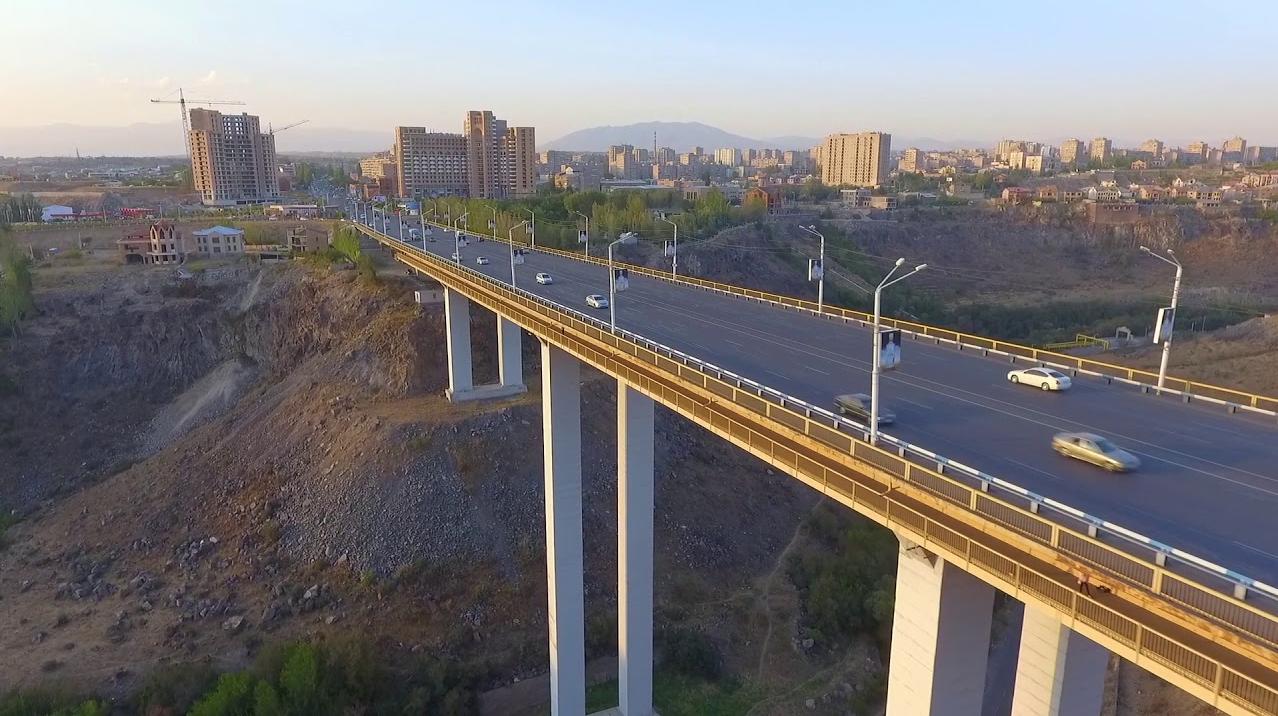
YEREVAN, Armenia – The largest LGBTQ+ non-governmental organization (NGO) · Charitable organization in Armenia announced the tragic death of two young gay Armenian youth who leapt to their deaths from the Davitashen Bridge across the Hrazdan River in the Armenian capital city October 20.
‘Pink,’ in a statement on their webpage, noted that the two boys had posted a final goodbye mutually under the Instagram handle rayyyyyennnnn which showed a collection of photos of the couple including an intimate moment. The post was labeled [translated] “rayyyyyennnnn- Happy Ending Decisions to share photos and all our joint actions were made by both of us”
The LGBTQ+ group in its statement pointed out: “
We consider it unacceptable to justify the death of people. The young men still had many years of life ahead of them, but because of intolerance towards them, they took such a tragic step. LGBT people are very familiar with the feeling of isolation and misunderstanding of family and society. This tragic incident proves once again that LGBT people in Armenia are not safe and not protected by society or the state.
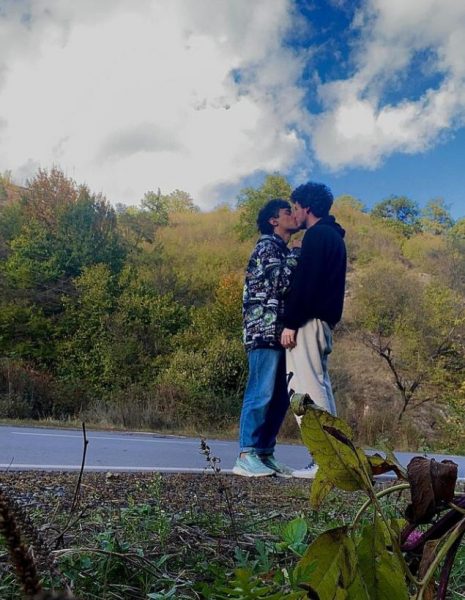
It is extremely important to show compassion, realizing the gravity of what happened. We offer our condolences to the families and friends of young people, and at the same time, sympathizing with their grief, we call on the public to refrain from insults, humiliating expressions, distorting the details of the incident in the form of hateful messages and comments, and spreading hatred.”
A spokesperson for the Davtashen Administrative District of Yerevan acknowledged that the suicide jump of the two teens occurred but declined to provide further information saying that the matter was still under investigation.
Open Caucasus Media journalist Ani Avetisyan identified the couple as Arsen, 16, and his 21-year-old partner, Tigran.
In its statement ‘Pink’ noted: “Unfortunately, it was not surprising to see the public reaction to what had happened. The photos posted by the boys quickly went viral on social media and Telegram channels with hateful and offensive language, mostly continuing to highlight the fact that the boys are gay, which justifies their decision to commit suicide. Many comments even encouraged others to do the same.”
Avetisyan reported that the suicide of Tigran and Arsen, has been shrouded in speculation. The reactions to their death have led to questions over the role society and the media plays in deepening the isolation felt by queer people in the country.
A prominent point of contention in the case was the age gap between the couple; Arsen was a minor, while his partner was five years older. Shortly after the news broke, screenshots surfaced allegedly showing Arsen’s mother commenting on his Instagram post saying: ‘as a minor, you are dead to me’ and ‘it’s better if you die’. The comments were deleted after news emerged of their death, Avetisyan noted.
Mamikon Hovsepyan spoke with Open Caucasus Media telling OCM the media plays a huge role in how cases pertaining to the queer community are received in society. He stressed that only a few media outlets were neutral in their coverage of the case, while others were ‘raising the level of hate in the country’.
Hovsepyan also commented that that 16-year-old had experienced psychological abuse and ‘probably a different kind of violence’ at home. The activist said that the boy did not have anyone with whom to share details of his life and that he didn’t receive any emotional support from his mother. His circumstances, Hovsepyan believes, might have pushed them to end their lives.
Despite the work of local queer groups, Armenia still lags behind in terms of queer rights, Avetisyan reported.
According to ILGA-Europe’s Rainbow Europe, an annual report on the status of queer rights across Europe, Armenia ranks third worst at the end of the scale, with only Turkey and Azerbaijan scoring lower.
South Central Asia
Taliban kill 22 year-old gay man in Kabul, Afghanistan
Pink News UK first reported the death of Hamed Sabouri, who was detained, tortured & video evidence of his killing sent to his family
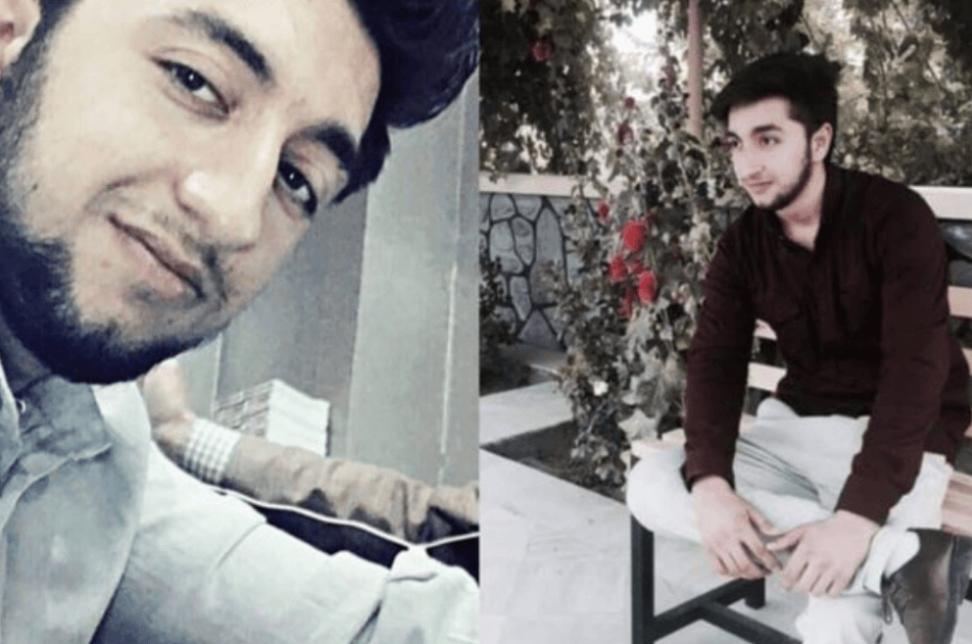
KABUL, Afghanistan – A twenty-two year old aspiring gay medical student was tortured and killed by Afghan fighters two months ago after being stopped at a checkpoint in the country’s capital city.
Pink News UK first reported the death of Hamed Sabouri, who was detained and then tortured with the video evidence of his killing sent to his family members in August.
According to a source who spoke via Telegram with the Blade on Friday, Sabouri had been detained at one of the hundreds of Taliban checkpoints in Kabul used by the terrorist group to enforce adherence to Islamic Sharia law and religious rules instituted after they took control of the country in August of 2021.
The source added that it was reasonable to speculate that there had been content on Sabouri’s mobile that served as the justification for his being detaining by the so-called Taliban freedom fighters leading to his torture and death.
The Taliban have often used the contents of the mobile phones seized to then extend the circle of LGBTQ+ persons they seek to persecute, imprison and torture.
Many in the Afghan LGBTQ+ community have taken measures to disguise their existence in country so as to not attract the Taliban’s attention. Several hundred LGBTQ+ Afghans have also fled to neighboring Pakistan to escape persecution.
South Central Asia
India activists use Independence Day to reiterate push for equality
Government, private institutions continue to exclude Trans people

NEW DELHI, India — India on Aug. 15 celebrated 76 years of independence.
This year’s Independence Day was very different. The Indian flag was everywhere; on cars, taxis, trucks, homes and government buildings. The country celebrated its true identity — Bharat, the Sanskrit name of India.
Sanskrit, the world’s oldest language, is part of India’s cultural identity. But the country’s LGBTQ+ and intersex community is still searching for true inclusion in different government and private institutions.
The Indian Supreme Court in 2018 struck down the colonial-era law that criminalized homosexuality. Four years later, on Aug. 15, Prime Minister Narenda Modi addressed the national from the Red Fort in Delhi, and talked about his vision for the country by 2047, but he did not specifically address the LGBTQ+ and intersex community.
The Indian government and private institutions do not allow people to choose gender-neutral or genderfluid identity markers. The use of appropriate pronouns for the LGBTQ+ and intersex community in public or private institutions is not very common either.
The Washington Blade sought comment from the Indian Post, the world’s most heavily used mail system, for comment on the issue, but it did not reply.
The Indian Post offers a variety of mail, insurance and banking services to its customers. While analyzing the saving account opening form, the Blade found that there are only three gender options: Male, female and other.
The Supreme Court in 2014 recognized Transgender people as the third gender in a landmark ruling and ordered the government to provide welfare programs to the community.
“It is the right of every human being to choose their gender,” said the Supreme Court.
The available gender options force one to identify either with male, female, or other as trans even if they are not any of these. The Madras High Court in 2021 laid out an agenda of inclusion for the LGBTQ+ and intersex community, but the majority of government and private institutions are still far from following these rulings.
The Blade also contacted public sector banks as well as private ones like HDFC Bank; Central Board of Secondary Education; a national level education board; Axis Bank and the Department of Social Justice and Empowerment, but received no response.
The Blade reached out to the Bank of Baroda, one of the country’s public sector banks.
A person with the bank’s HR team hung up the phone when asked to comment. The bank has a branch in New York, but it did not respond to a request for comment.
Not everything, however, is as bad as it seems.
Kerala, a state in southern India, in January 2021 decided to include “Transgender” as the option in all government forms for a more inclusive approach. Following the Supreme Court judgment, the state established a district board for the Trans community that can respond to trans-specific ID cards.
Government and private institutions are failing to achieve complete gender inclusivity — including the use of proper pronouns — in spite of efforts to enact progressive policies for India’s Trans, lesbian, gay, bisexual, queer and intersex communities.
Tamil Nadu, another state in southern India, on Aug. 20 published a document from its Social Welfare and Women Empowerment Department.
The document included a glossary of terms to be used to address the LGBTQ+ and intersex community, and it came from the Madras High Court. The Tamil Nadu government mandates the use of terms from the glossary in all institutions, including the media, to address community members. It includes “thirunangai” (Trans women,) “thirunambi” (Trans men,) “pal puthumaiyar” (queer) and “oodupal” (intersex.)
Many high school students with whom the Blade spoke said the use of these terms would be a positive step towards inclusivity, but private schools and other institutions do not provide many options for those who want to select their gender.
The Blade in December 2021 reported the National Council of Educational Research and Training published a manual to make teachers and students more sensitive to LGBTQ+ and intersex issues. It was meant to create a more inclusive environment for Trans students, but the organization withdrew the manual after conservative activists protested.
To make sense of how gender identity and sensitization about gender can affect students in schools, one must look back at February of this year, when a student of Delhi Public School, a premier private school, died by suicide by jumping off his residential building. His mother in a complaint she filed with the police alleged her teenaged son faced extreme harassment at school over his sexuality.
Changes in colleges and universities are also coming, but the pace is slow.
The Blade in April reported that the National Academy of Legal Studies and Research became India’s first gender-neutral university. With this new policy, the university also included the gender-neutral prefix Mx.
The Indian Institute of Technology in Mumbai, a premier institution in India, and other central government-funded institutions have accepted and are supporting LGBTQ+ and intersex inclusion by allowing the formation of an LGBTQ+ and intersex club at the campus. But gender options other than male, female and other, are still not available on the institute’s entrance exam or during the admission process.
“We agree that despite various rulings and judgments passed by the Supreme Court, there is still a long way to go for having better inclusion in government institutions. Though from having ‘male’ and ‘female’ as the only two default options to choose from, there has been increasing inclusion of ‘genderfluid’, ‘others’, ‘prefer not to say,’ etc., as categories of identity in many, if not all, places,” said Khushi, a representative of Saathi, an LGBTQ+ and intersex support group and a club at the Indian Institute of Technology. “Yet to make this phenomenon or this change a habit or routine, there is a lot that needs to happen. Given the way Indian society is structured, this entire idea many a time falls on deaf ears.”
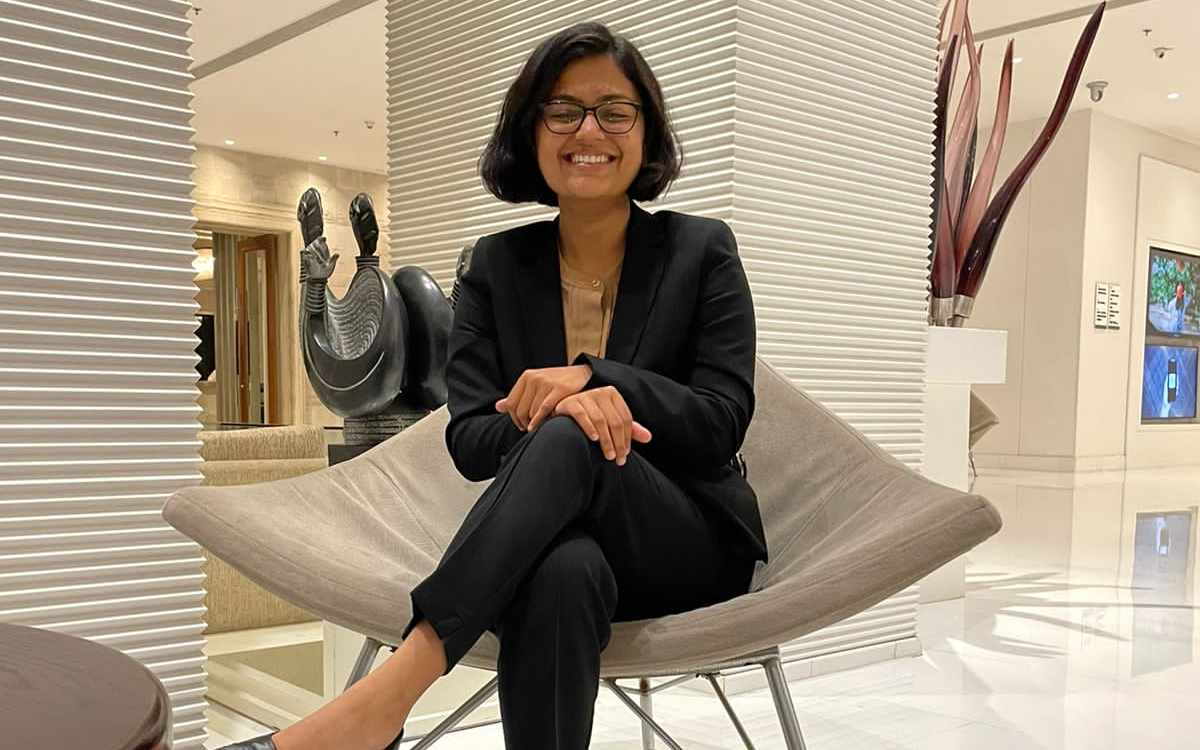
Saathi throughout the year organizes workshops, movie screenings and informal meetings for everyone, including straight people who want to understand the community.
“To bring about a change, the government bodies have to consistently use inclusive language across its portals. Being inclusive in the school/college admission process as well as a further commitment to a gender inclusive and friendly environment can go a long way,” said Khushi. “Apart from that government can support already existing academic level and independent organizations that uphold the LGBTQIA+ cause. Anti-harassment policies can be gender neutral. In case of universities there can be courses that run-in sex and gender identity. There can be compulsory nonbinary gender orientations. There are many other things that can be done but the point is that though slowly but surely some change is coming through.”
Instagram in 2021 announced the inclusion of the LGBTQ+ and intersex community by providing the option to add pronouns. But Meta’s picture-sharing app is still far from providing the Indian LGBTQ+ and intersex community with this feature.
The Blade reached out to Meta for a comment on the issue, but the company, which faces accusations of failing to prevent the incitement of violence in neighboring Myanmar, did not respond to multiple requests.
While talking with the Blade, Kumaresh Ramesh, a former Saathi coordinator, said that even though the courts have decriminalized same-sex relationships and advanced the rights of people in the Trans community, there is a lot of work left to be done to mainstream acceptance in the society.
Ramesh graduated from the Indian Institute of Technology last year and is no longer part of Saathi. While expressing his opinion, he suggested some measures which can help normalization of other gender and pronoun use.
“While one can litigate in court for enforcing these changes, we should also work on organically making it commonplace. For instance, if we make it a point to state our preferred pronouns and encourage others to do so, the government will eventually have to follow suit. I would like to request professors and teachers across disciplines to also state their preferred pronouns while they introduce themselves. This could be a small but powerful step towards fostering acceptance,” said Ramesh.
“Although IIT Bombay is centrally-funded and the current central government has not come out in support of the LGBTQ community, the administration has been largely supportive of Saathi, especially in the more recent years as awareness about the community has gone up. Talking about the government, intent is the key. If the government wishes to further the acceptance of the community, the importance of diversity and inclusion should be taught to school students. Greater representation of the community in school curriculum will increase acceptance not just in the young generation but also their parents and grandparents.”
Neysara, the founder of Transgender India, an online portal that supports the trans community and creates awareness, said that preferred gender-neutral pronouns are important for the Indian Trans community. She also said that to make preferred/gender-neutral pronouns one of the centerpieces of Indian Trans discourse would be a prime example of blindly copy-pasting western Trans discourse to India without any understanding of the cultural context.
“Forget the pronouns printed in a form, most Trans people in the country are not even allowed to enter SBI (one of India’s largest public sector bank) or a post office,” said Neysara. “How will they even see this form? Such tokenistic moves of printing a word on a form is super easy, what’s more difficult is inclusion, reform and sensitization. That’s what we need in any office.”
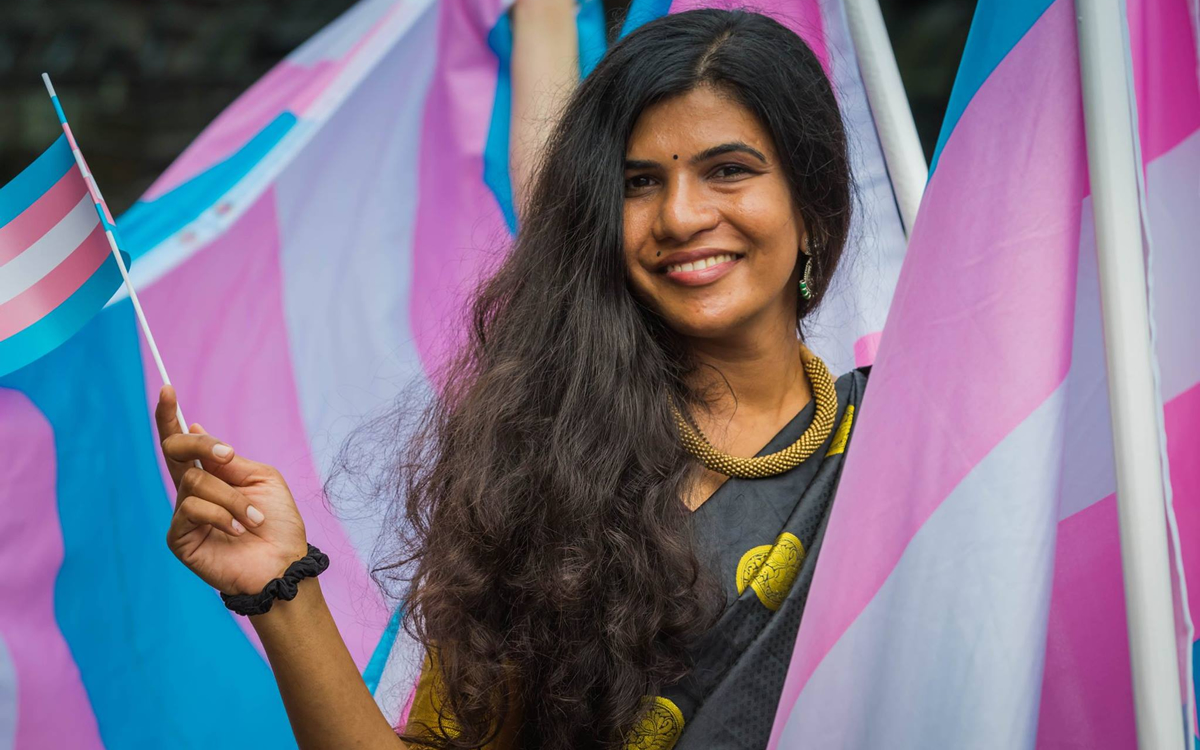
Ankush Kumar is a freelance reporter who has covered many stories for Washington and Los Angeles Blades from Iran, India and Singapore. He recently reported for the Daily Beast. He can be reached at [email protected]. He is on Twitter at @mohitkopinion.
-
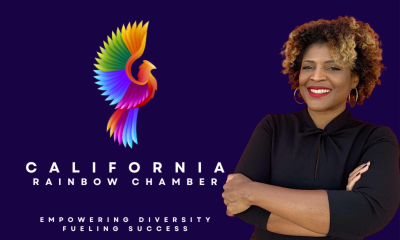
 Business4 days ago
Business4 days agoLos Angeles Blade partners with the California LGBTQ Chamber of Commerce for 2026
-

 Religion & Faith3 days ago
Religion & Faith3 days agoComing home to myself this Hanukkah in West Hollywood
-

 National2 days ago
National2 days agoAs house Democrats release Epstein photos, Garcia continues to demand DOJ transparency
-
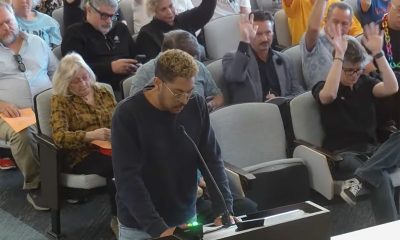
 Riverside County2 days ago
Riverside County2 days agoYesterday, Palm Desert residents shut down Councilmember’s “hateful” proposal to remove City’s Pride Month resolution
-
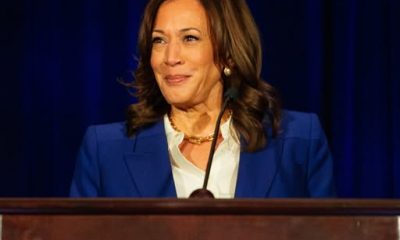
 Politics2 days ago
Politics2 days agoLGBTQ Democrats say they’re ready to fight to win in 2026
-

 Leather community4 days ago
Leather community4 days agoLegacy never looked so good: LA Leather Pride’s George Vasser talks titleholders past, present, and future
-

 Celebrity News4 days ago
Celebrity News4 days agoRob Reiner, ‘The Princess Bride’ director and outspoken LGBTQ+ ally, dies at 78
-

 Sports15 hours ago
Sports15 hours agoLA County contributes over $181K to Out Athlete Fund for Pride House LA/West Hollywood
-

 National2 days ago
National2 days agoWhite House deadnames highest-ranking transgender official
-

 Politics2 days ago
Politics2 days agoGeorge Santos speaks out on prison, Trump pardon, and more



